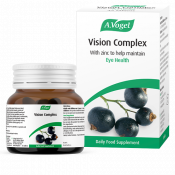An introduction to treating conjunctivitis at home
Conjunctivitis is a common condition that can be either infective (bacterial or viral), allergic (such as an allergy to pollen or dust mites) or irritant (for example chlorinated water, or a stray eyelash). In most cases, this condition is not serious and can easily be treated at home, with a range of self-care techniques, natural remedies and herbal remedies.
If your symptoms are severe, for example if you are in pain or your vision is affected, if it is a toddler or baby who has the condition, or if your symptoms are not improving after a few days, you should see your GP.
What home treatments are there for conjunctivitis?
Most cases of conjunctivitis clear up on their own,but this process can be helped along by using a number of self-care techniques at home. Firstly, while suffering from conjunctivitis it is important to keep your eyes clean. Here are our good hygiene tips:
- If you wear contact lenses, remove these while you are suffering from the condition. Once the conjunctivitis has cleared, use a new pair of lenses. Ensure your contact lens case has been thoroughly disinfected
- Gently clean any discharge from around the eye to prevent any infection developing, worsening or spreading
- While you have conjunctivitis, don’t use any eye makeup as this will slow down recovery. Any makeup you do use will have to be thrown away anyway to prevent re-infection, so it’s in your best interest to go makeup-free for a few days
- Remember to wash your hands before and after touching the infected area to prevent the infection worsening or spreading.
Aside from maintaining good eye hygiene, there are a number of home treatments you can try to ease symptoms and speed up recovery. Our suggested natural home treatments are:
- Place a cold or warm compress over the affected eye to ease symptoms. The moisture will also help remove any crusty or sticky discharge, particularly in the morning after it has built up overnight. Most people recommend a cool compress for allergic conjunctivitis
- Many people recommend using honey to treat conjunctivitis (along with many other ailments). We suggest boiling water for 5 minutes, then letting it cool until it’s a comfortable temperature to touch. Mix a cup of this water with a teaspoon of raw honey (or raw Manuka honey if you have it), then soak a cloth or flannel in the mixture and place over the eyes. Ensure the water is not too hot – it should not be painful, or even uncomfortable, but warm and soothing
- Make a cup of camomile tea, then, after letting the bag cool, place the bag over the affected eye, or eyes. Again this should not be so hot as to be painful or uncomfortable, but should be warm and soothing
- Use lubricant eye drops a few times a day (or as recommended by the manufacturer) as these will help clean out the eye. We recommend the A.Vogel Eye Drops.
There are a number of websites out there that recommend applying a range of homemade remedies directly to the eye. We strongly advise against doing this because there is a strong risk of causing further damage to the eyes.
Preventative measures
It is important to maintain good eye hygiene on a daily basis, rather than just when you are suffering from conjunctivitis. This will help prevent the condition before it even starts. Our tips for preventing conjunctivitis are:
- Make sure you clean your contact lenses and case regularly. Ensure you have clean hands when putting them in or taking them out, and do not use the same pair of lenses for longer than you have been advised
- Try to avoid rubbing or touching your eyes, but if you have to do so for any reason, make sure you have clean hands
- Improve your makeup hygiene – remove eye makeup before bed, pay attention to use-by dates and don’t share makeup
- Improve your diet to help boost your general eye health
- If someone in your household or someone close to you has conjunctivitis, ensure that you use separate hand towels and face towels, and use gloves if you need to help them clean the area around their eye
- Wear eye protection when working with chemicals or when swimming in a chlorinated pool.
Are there any herbal or natural remedies that might help?
The symptoms of conjunctivitis can be eased using the herb Euphrasia, also known as Eyebright. This has been used to treat eye problems and maintain eye condition from as early as the 14th Century, though it is thought that the plant may also have been known to classical herbalists.
There is significant research evidence to suggest that Euphrasia aids recovery from conjunctivitis. One study found that of a group of patients whose conjunctivitis was treated solely with Euphrasia, 81.5% made a full recovery, with a further 17% showing ‘clear improvement’.
We recommend using Euphrasia in eye drop form, such as the A.Vogel Eye Drops containing Euphrasia, which can be safely used by contact lens wearers. Euphrasia may be particularly useful in cases where conjunctivitis is caused by a viral infection, as regular antibiotics will not work for this.
Conventional treatment
In some cases, conventional treatment may be required. This treatment will depend on the type of conjunctivitis you have.
If it is caused by a bacterial infection, then antibiotics may be prescribed if the infection is not clearing up on its own. In the case of a viral infection, antibiotics will not work. Depending on which virus has infected the eye, there may be an antiviral medication available. If not, your doctor will likely recommend home treatments such as those detailed above.
If conjunctivitis is caused by an allergen then it may be treated with antihistamines or corticosteroids.
For irritant conjunctivitis, no treatment is generally prescribed; the condition will clear up on its own once the irritant has been cleared from the eye, though eye drops and compresses may help with symptoms.
For any form of conjunctivitis, you can buy eyewash from your local chemist or health store, which will help clean out the eye.





 Looking for help to ease those dry, tired and irritated eyes?
Looking for help to ease those dry, tired and irritated eyes?

